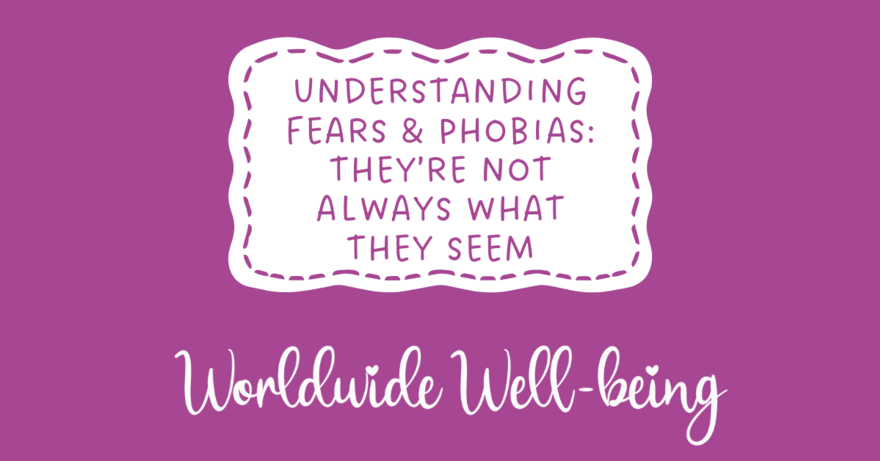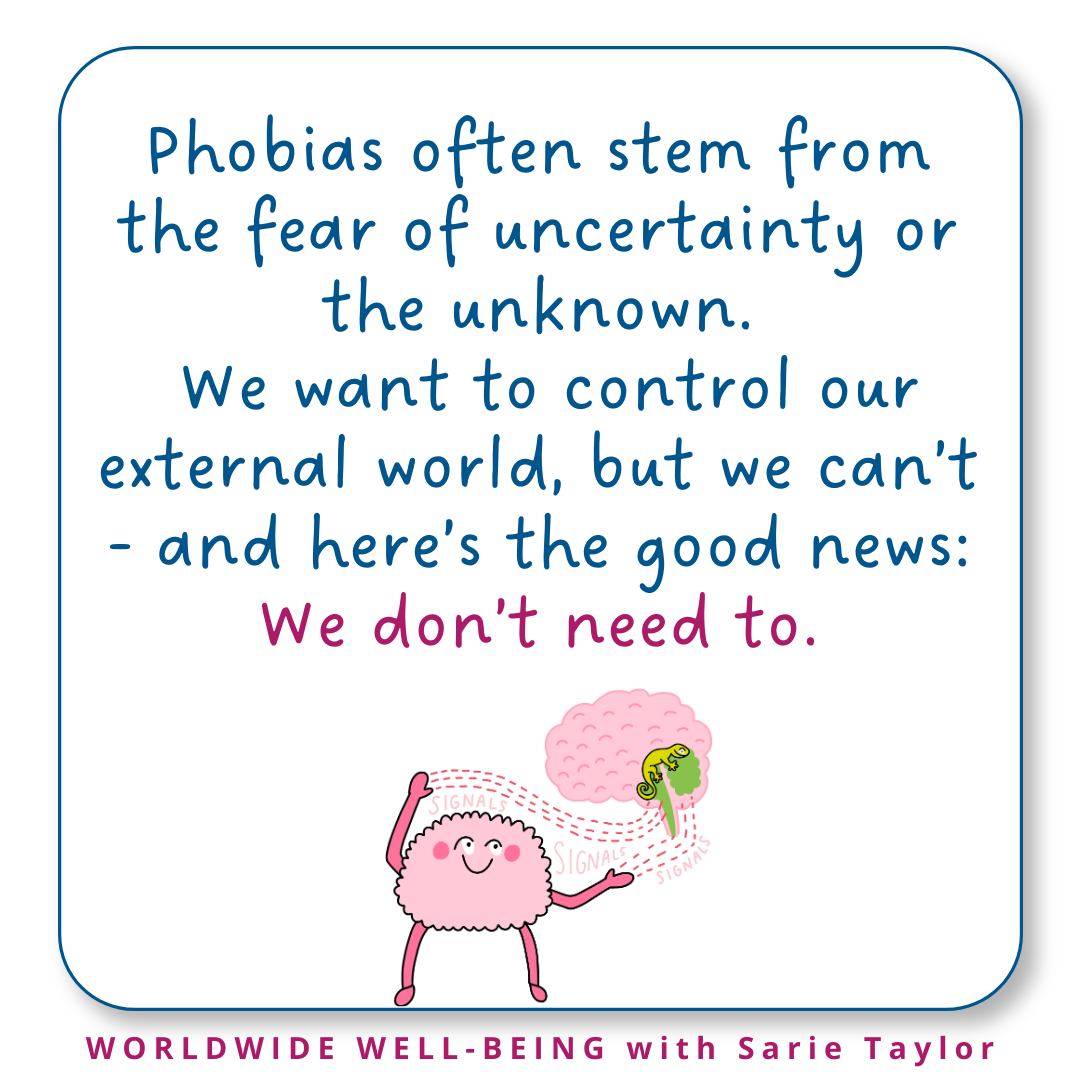
Most people would say they’re afraid of something, or at least feel uncomfortable about certain things.
But when does discomfort turn into a phobia?
You may even wonder if what you’re experiencing is a phobia.
What is a Phobia?
A phobia is defined as:
“An extreme or irrational fear of, or aversion to, something.”
Phobias are personal and unique to each individual. It’s how you perceive or “think” about a particular situation, yet we often talk about phobias as if the object or situation is the problem itself. But if that were true, wouldn’t we all have the same phobias?
Take, for example, my encounter with a phlebotomist (someone who takes blood samples). She asked me multiple times if I was okay with the blood test, even though I kept reassuring her I was fine. After a few too many times, I had to ask why she was so concerned.
She laughed and said, "I always ask because I have a phobia of having my blood taken!"
Wait, what?! A phlebotomist with a fear of blood tests and needles? I asked her why she didn’t choose another profession. She replied, “Oh, I’m fine taking blood from others - I just fear having it done to me.”
Phobias: A Product of Thought, Not Reality
This story is a perfect example of how phobias are thought-driven rather than being tied to the actual object or situation.
Fear of spiders?
Some people keep them as pets.
Fear of heights?
Some people scale mountains and cliffs for fun.
When we experience fearful thinking about a situation, we feel it deeply. We're always in the feeling of our thoughts. Think about any time you’ve felt fear. Was it because something was happening in that exact moment?
Or was it because of the “what ifs” and “what’s next”?
Shifting the Focus: It’s About the Thought, Not the Thing
When we say, “I have a phobia of X,” it seems like we’re putting the emphasis on the thing itself - something we have no control over. But what are we really saying? We’re admitting that we have a lot of thinking around spiders, heights, or whatever the fear may be.
Phobias often stem from the fear of uncertainty or the unknown. We want to control our external world, but we can’t - and here’s the good news: We don’t need to.

The Three Principles: Understanding Thought and Fear
The Three Principles (Mind, Consciousness, and Thought) teach us that our experience of life is created from the inside out. When we realise that our fearful thoughts are just that - thoughts - we become more comfortable with the discomfort they bring.
In turn, we experience fear much less, if at all.
If this resonates with you, I invite you to explore this deeper in my upcoming live session, All About Fears & Phobias.
Join Us Live: All About Fears & Phobias
In this session on 6th November 2024 (replay will be available in The Membership afterwards for anyone who is reading this AFTER that date), we’ll explore the nature of fears and phobias through the lens of The Three Principles and learn how to shift our relationship with them.


Comments